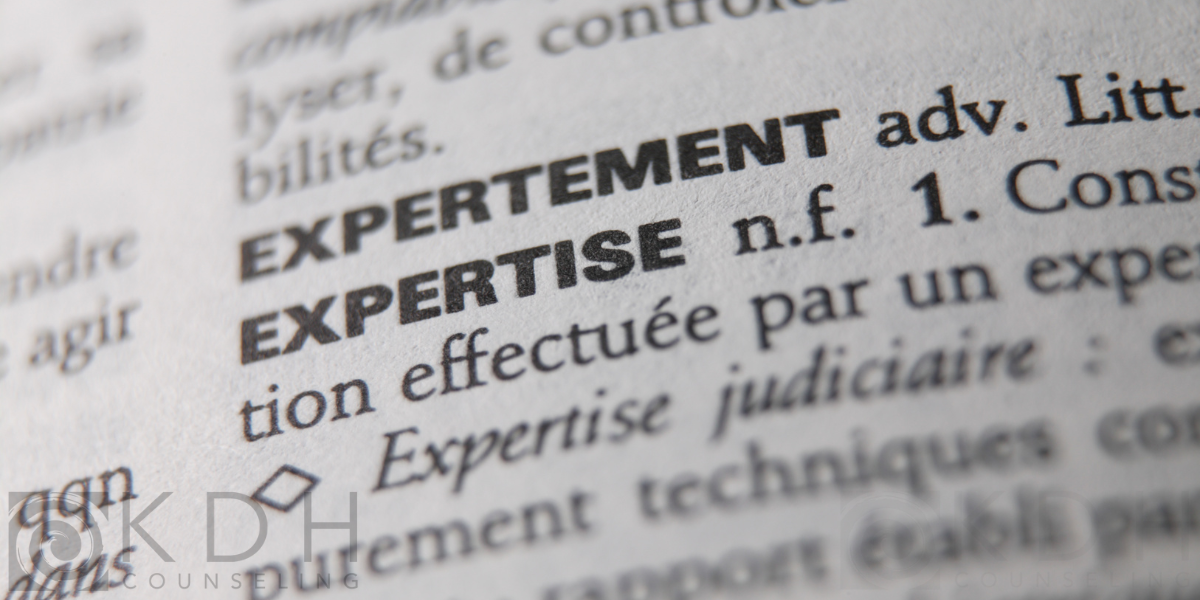Why Niche Matters: The Power of Specialized Therapy
Let's face it: when you realize you need help navigating life's complexities, the thought of finding a licensed therapist can feel overwhelming....

3 min read
 Monet David, MS, LPC, ADHD-CCSP
:
Jan 31, 2023 12:00:00 AM
Monet David, MS, LPC, ADHD-CCSP
:
Jan 31, 2023 12:00:00 AM

When the subject of sex comes up in session it is often in hushed whispers with eyes diverted to the ground. Sex education is a part of therapy. People (adults usually) are admitting out loud, sometimes for the first time ever, a part of themselves they have never had the chance to be vulnerable about or even explore in depth. Our sexuality is just as much a part of us as any other aspect of identity, but it is often unattended and undeveloped. Partly because we live in an erotophobic society and partly because we don’t truly ever receive quality, comprehensive sex education. So, what does that mean for us?
What exactly is sex education? Well, Planned Parenthood sums it up nicely when they say,
“Sex education helps people gain the information and skills they need to make the best decisions for themselves about sex and relationships.” Sex education is the accumulation of knowledge but more importantly it is liberation from stigma and misinformation.
Planned Parenthood goes on into greater detail on subjects that are included in Sex Education curriculums,
Human development, including puberty, anatomy, sexual orientation, and gender identity
What do I mean when I mention the phrase “Comprehensive Sex Education”. That is defined as,
“A rights-based approach to comprehensive sexuality education (CSE) seeks to equip young people with the knowledge, skills, attitudes, and values they need to determine and enjoy their sexuality—physically and emotionally, individually and in relationships. It views sexuality holistically, as a part of young people’s emotional and social development. It recognizes that information alone is not enough. Young people need to be given the opportunity to acquire essential life skills and develop positive attitudes and values. "In essence, sex educators who teach comprehensive sex education seek to empower students to make decisions based off their own values and lived experiences in relation to their sexuality.
Currently, the state of Louisiana does not require that schools teach sex education. And when schools do make the choice to offer any sort of sex education it is not required to be comprehensive or medically accurate. It is also not mandated that sex education in Louisiana include teaching students about consent. Conversely, and against research suggestion, abstinence must be a part of the curriculum as the “expected social standard”. Any materials used in sex education provided in the state can also not feature explicit depictions of homosexuality. All in all, an abysmal attempt to empower our youth is being made currently.
The fallout from this lack of education has real, scary impacts.
Per Louisiana Health Hub.org, “Young people, between the ages of 15 to 24, account for 50% of all new STDs, although they represent just 25% of the sexually experienced population.”
The 2019 STD/HIV Surveillance Report indicates that
Despite these statistics there is hope yet for empowering people in their own journey of self-discovery with a focus on sexuality. The internet has a wealthy of knowledge (if you know where to look), and many books have been written on the topic in the last few years. Now, we also have a great resource in AASECT—the American Association of Sex Educators, Counselors and Therapists. On the AASECT website you can find a directory of professionals who are accredited.
What about resources for adolescents? There is also hope with the opening of Safe Havynn Education Center in 2015. They currently serve south Louisiana and have a home base in Lafayette, Louisiana.
“Safe Havynn Education Centers mission is meet people where they are and to find tools and teach them the knowledge, skills, abilities, and attitudes necessary for them to move forward in a positive direction. Through education, we meet people where they are and teach them tools that will help them to thrive.”
Safe Havynn offers teens and young adults the opportunity to learn and grow within a group dynamic that is free to all participants. I will often make the recommendation to parents of my adolescent clients that they consider Safe Havynn’s programming to supplement the topics that are being discussed in session and to empower their child to make safe, healthy decisions.
All in all it is my goal as a mental health professional to empower my clients to attend to their health in a holistic manner. Part of that work can sometimes include their sexual health and identity. I am proud to be an educated provider that holds space for such subjects and invite you to consider if this is an area for growth in the new year!

Let's face it: when you realize you need help navigating life's complexities, the thought of finding a licensed therapist can feel overwhelming....

1 min read
I’ve got a confession to make, a therapist's refection. I am so sick of people finding out what I do for a living and then saying the absolute most...

One of the beautiful things about "what is therapy" is the possibility it possesses. I have had the pleasure of witnessing growth right before my...